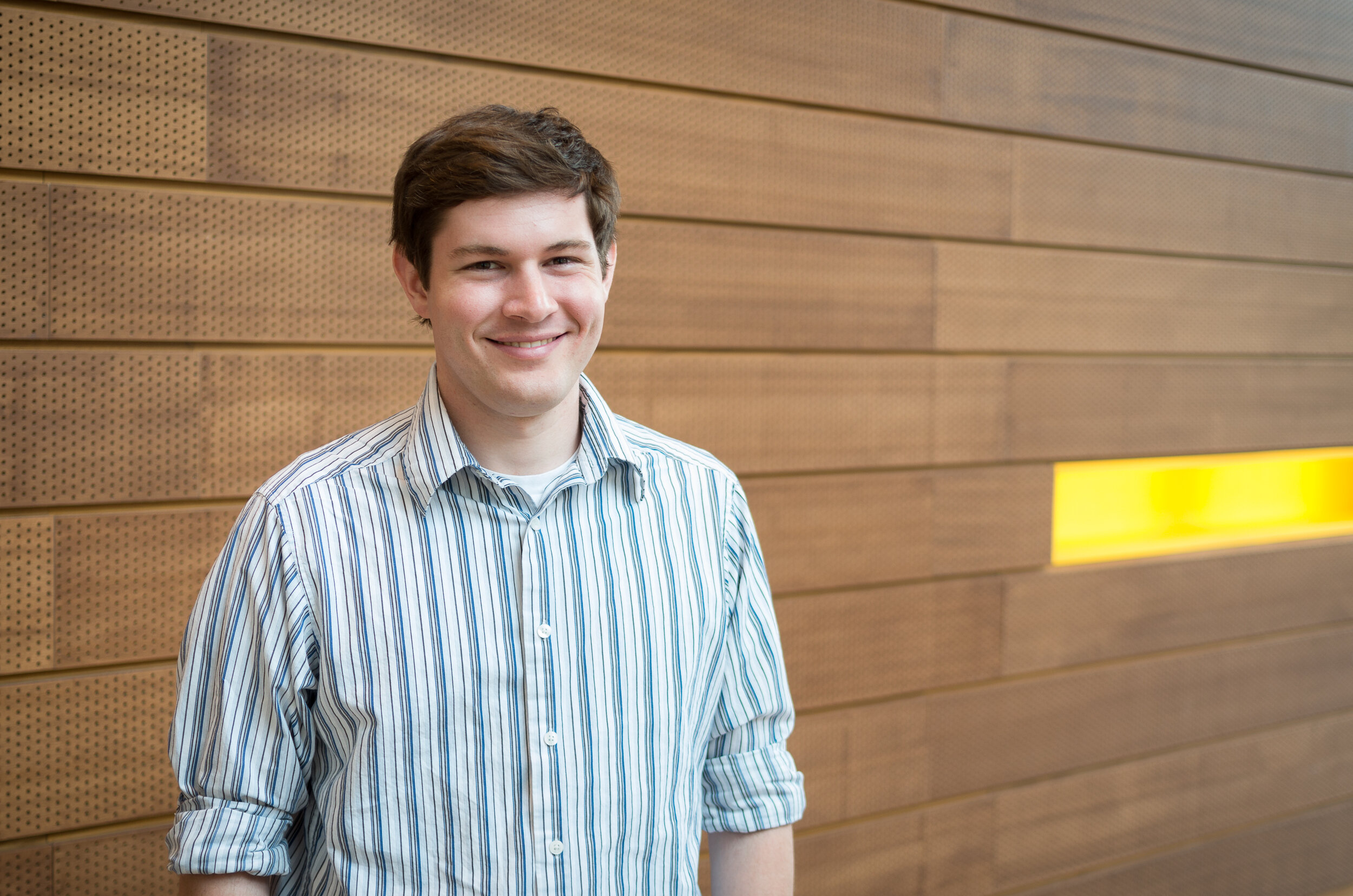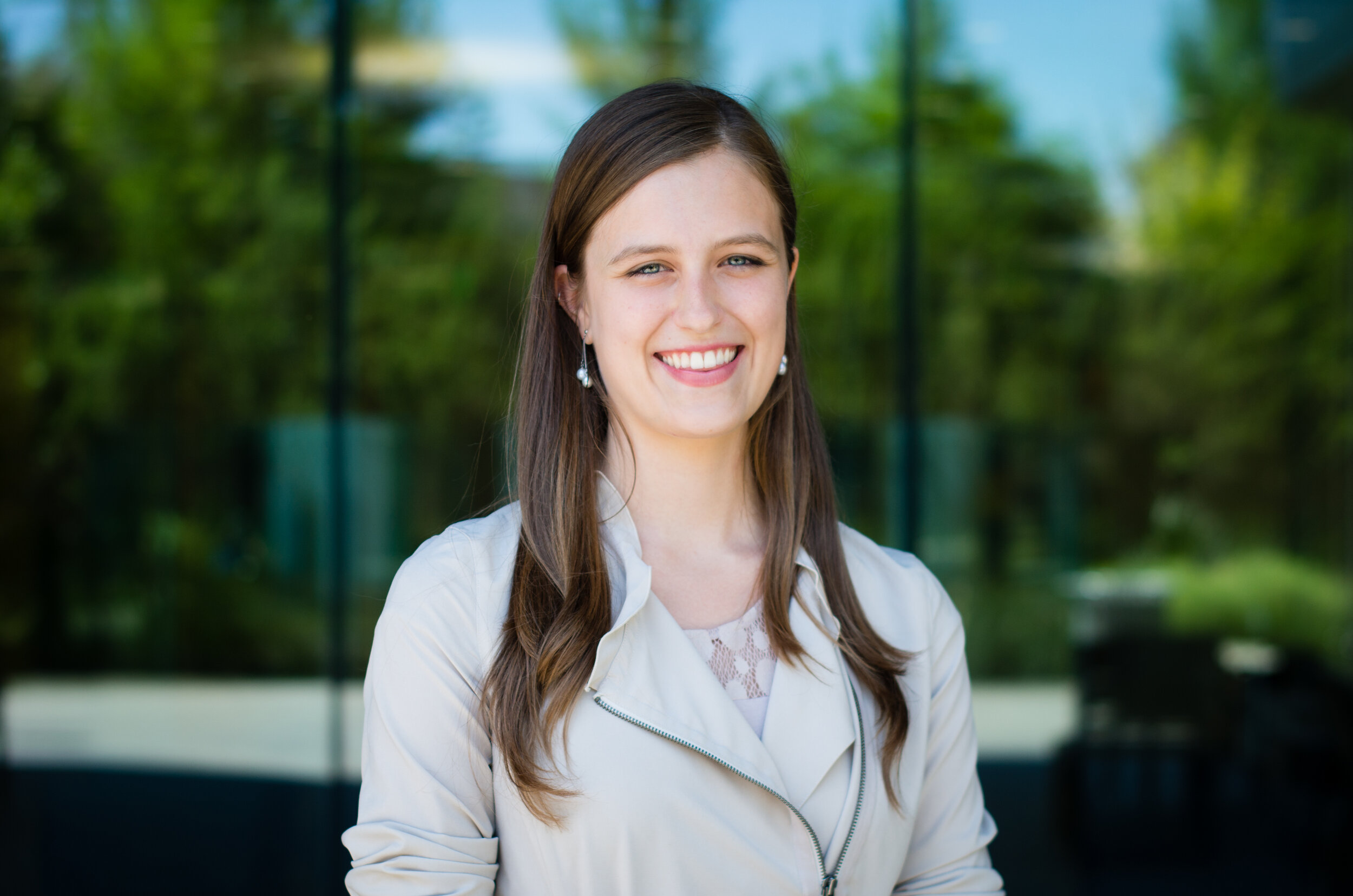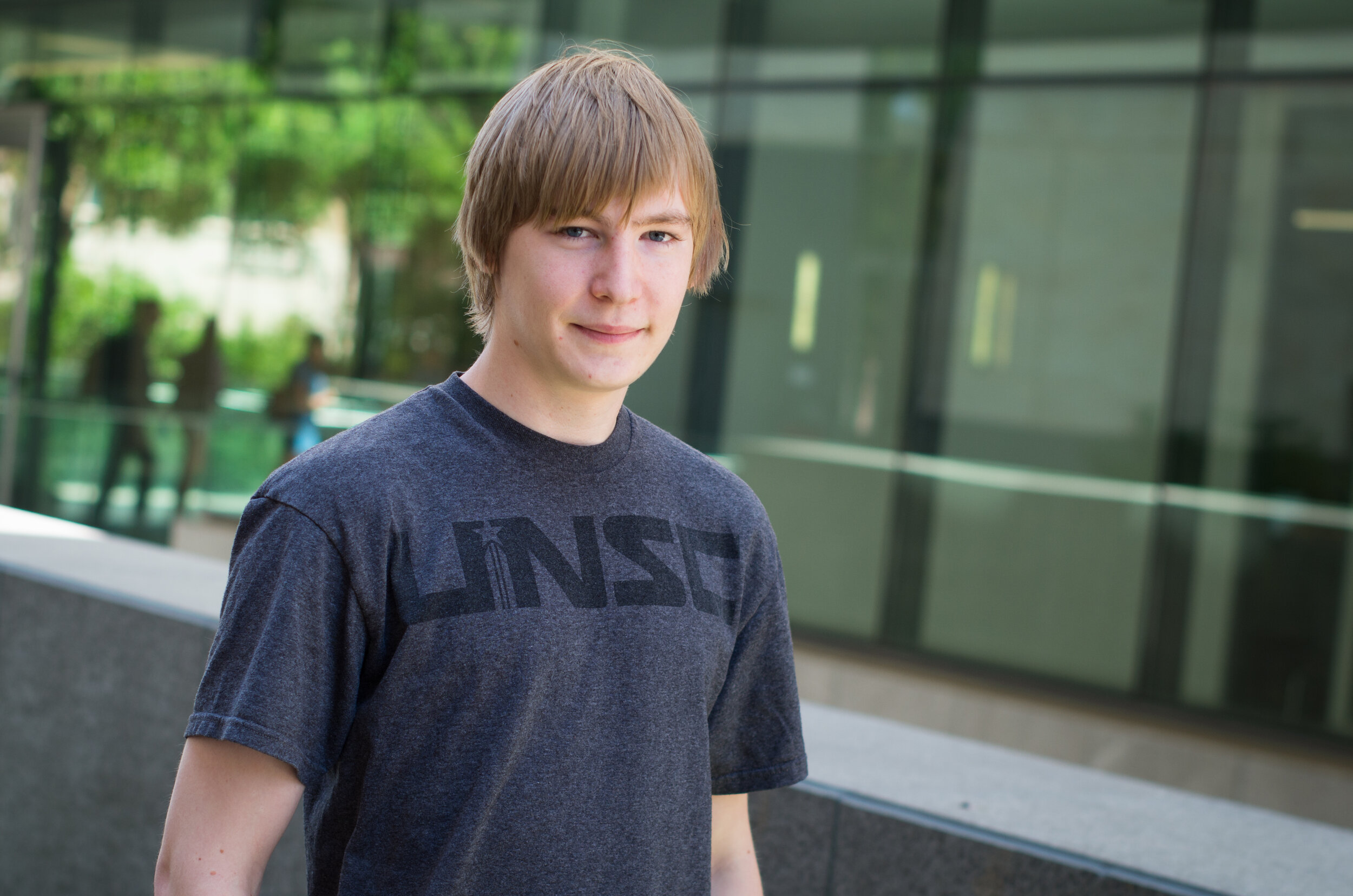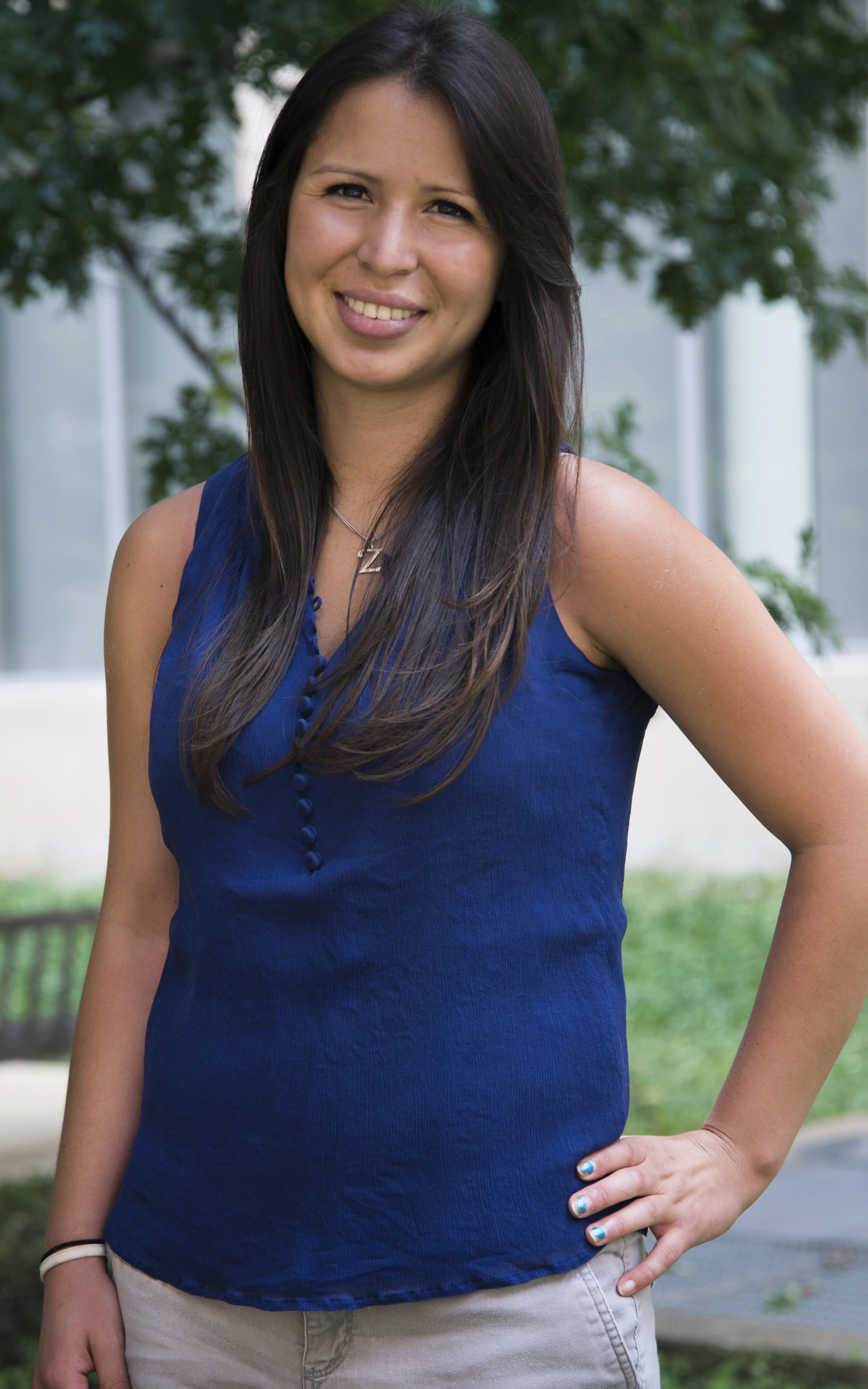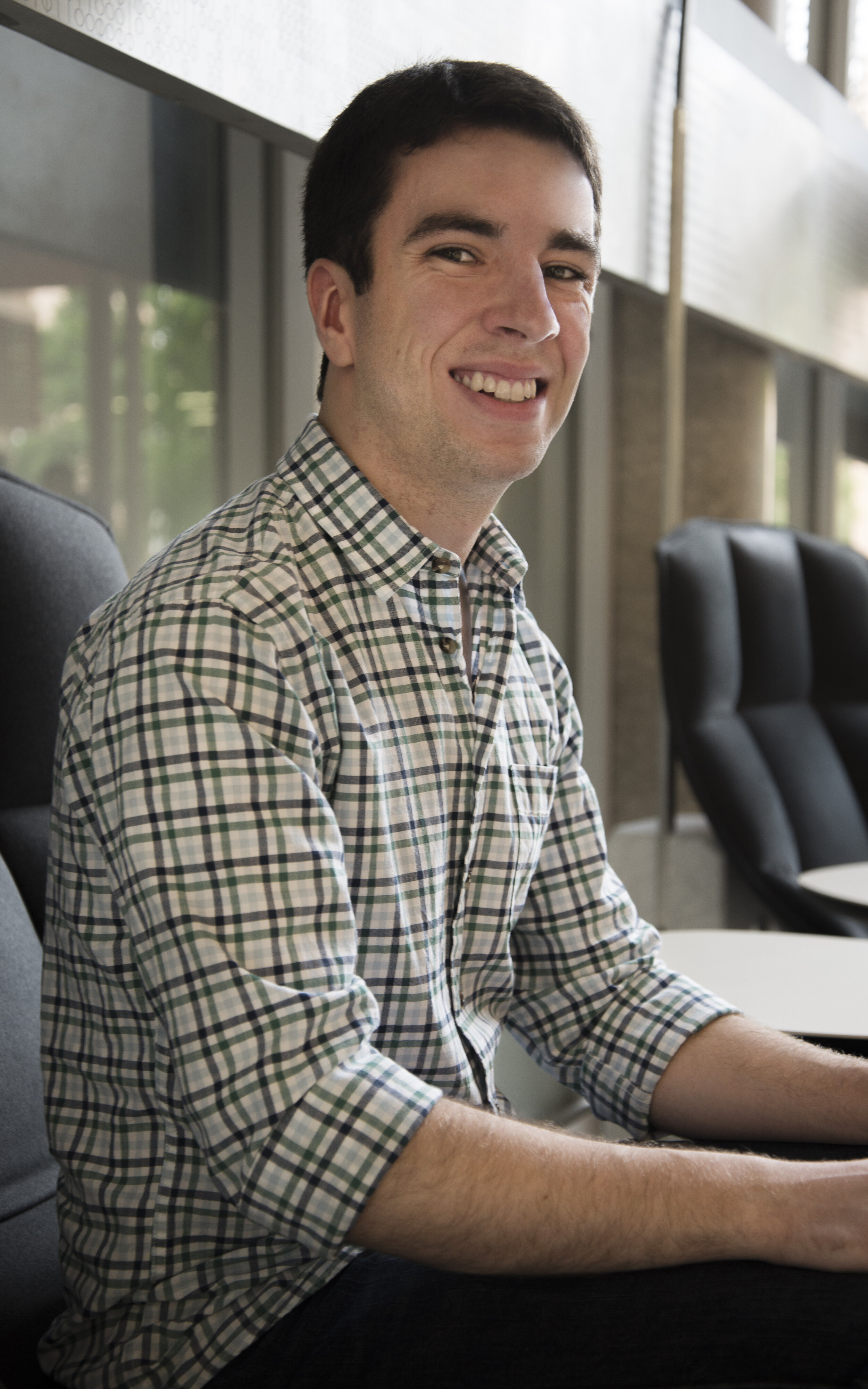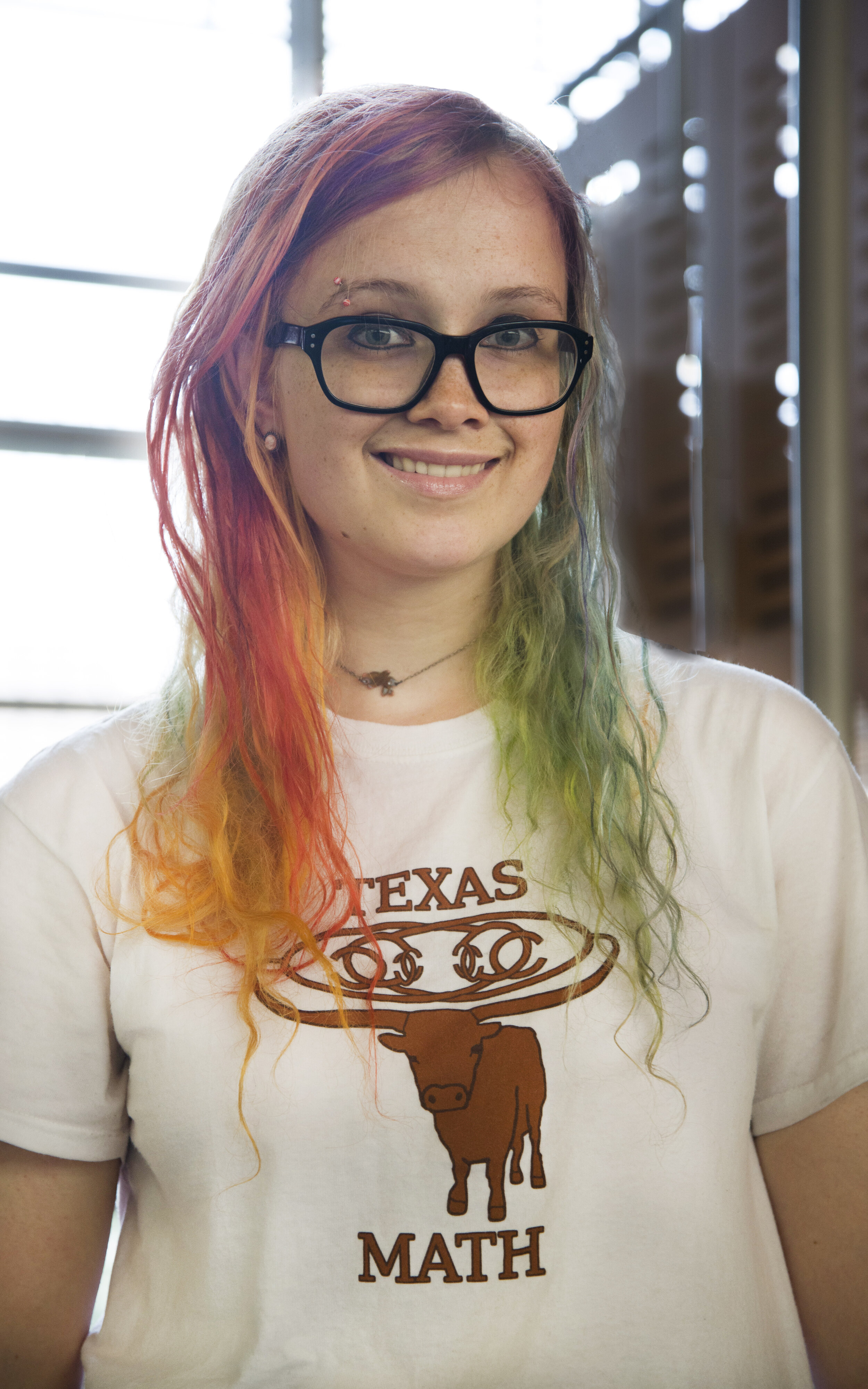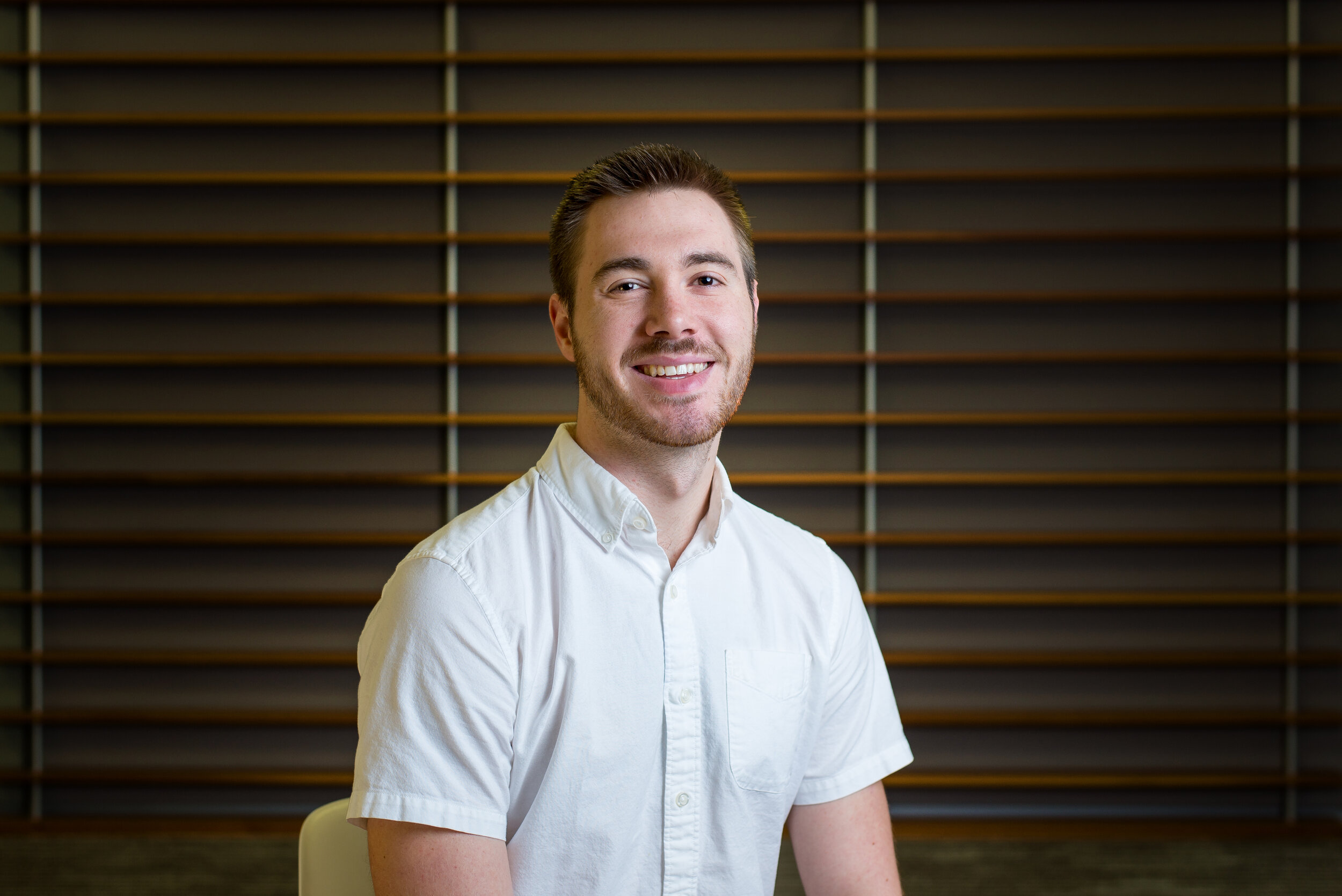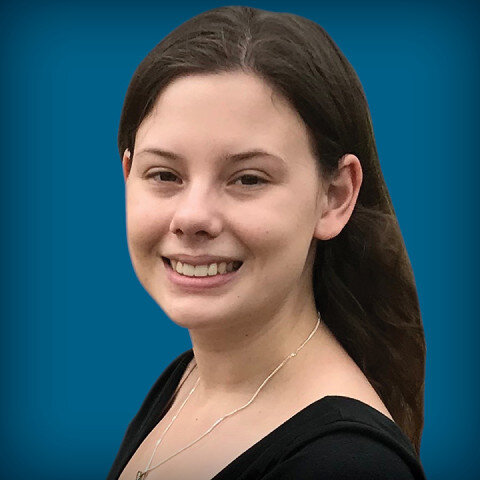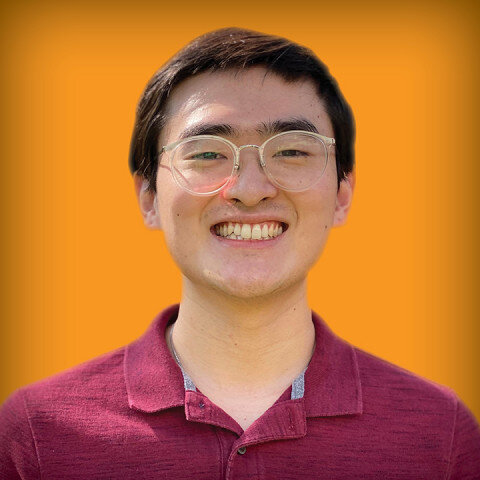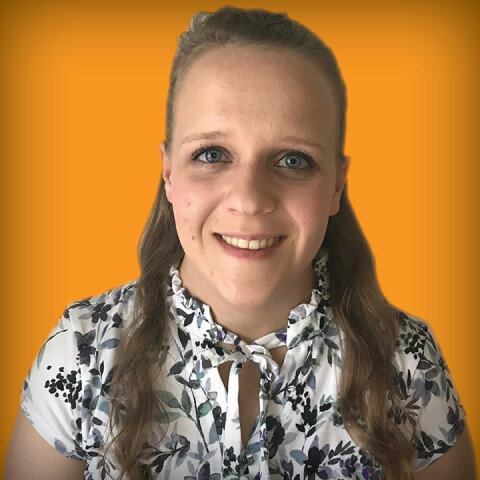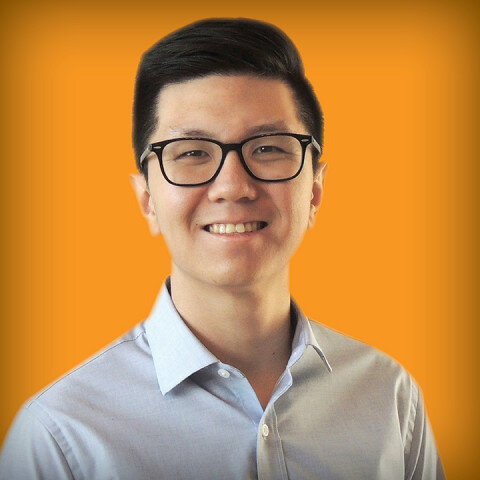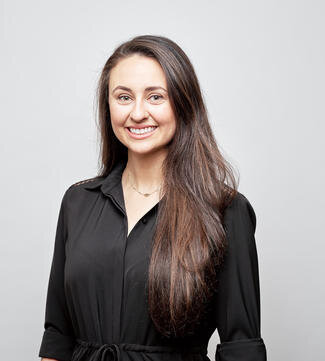
Career Paths
Having been involved in research throughout their undergraduate career, Dean’s Scholars are uniquely well-positioned to pursue a career in academia. Many Dean’s Scholars are involved with very successful labs at UT Austin or elsewhere as undergraduates, opening doors to some of the best graduate programs in the nation.
Past graduate school acceptances include: Harvard, MIT, Princeton, Stanford, UC Berkeley, UCSF, Duke, University of Washington, Columbia, UChicago, Cambridge, and Oxford.
Many Dean’s Scholars go on into careers in industry after their undergraduate work in research. These students often spend their summers working at paid internships that lead to full-time positions after graduation.
Dean’s Scholars have gone on to work for household names and Fortune 500 superstars such as Google, Facebook, Snap Inc., Qualcomm, Procter & Gamble, Amgen, Microsoft, and Amazon.
Dean’s Scholars can also move from undergraduate research into a career in medicine! For some people, this means combining research and medicine in an MD/PhD. For others, their extensive research experience allows their application to stand head and shoulders above the crowd. Many DS upperclassmen have sage advice to help you navigate the confusing path to medical school. They can help you plan out which classes to take, how to prepare for the MCAT and interviews, and when you need to start thinking about your applications.
Past medical school & MD/PhD acceptances include: Harvard, Johns Hopkins, University of Pennsylvania, University of Chicago, Northwestern, Vanderbilt, University of Michigan, Baylor College of Medicine, and UT Southwestern.
Not everybody who graduates from Dean’s Scholars falls into one of the categories above! Dean’s Scholars are interesting people who go on to do very interesting things. Many Dean’s Scholars combine their interests outside of the sciences with their work in the College of Natural Sciences, often by adding another major, honors program, or both. If you aren’t sure about where you might end up after college, don’t worry. You aren’t restricted to research, and you have the freedom to pursue anything, from teaching to theology.
Dean’s Scholars Recognition:
From Graduation to the International Stage
Every year, the College of Natural Sciences picks around 20 graduating seniors (fewer than 1% of the graduating class) to be honored as Dean’s Honored Graduates, the highest honor given by the College of Natural Sciences. Large numbers of the Dean’s Honored Graduates (sometimes nearly half) come from Dean’s Scholars, which speaks to the quality of the students in the program and the rigor of their studies. Dean’s Scholars are also recognized at the national and international level: recent years have seen Dean’s Scholars winning or reaching the finalist level for Rhodes, Marshall, Truman, Goldwater, Gates-Cambridge, Mitchell, and other prestigious scholarships, and the overwhelming majority of students who win these awards from CNS are Dean’s Scholars.
Historically, 95% of national award (Rhodes, Marshall, Goldwater, etc.) recipients from CNS come from Dean’s Scholars.
Additionally, every year the National Science Foundation Graduate Research Fellowship Program selects outstanding students to receive funding for their graduate school experience. In 2017, 5 undergraduate students in UT’s College of Natural Sciences were selected for this prestigious award; all 5 were in Dean’s Scholars. In 2016, 2 students were selected from UT; 1 was a DSer. Scroll towards the bottom of this page to see where they are now!
Research/Academia
Will Berdanier
Class of 2013, PhD in Physics at UC Berkeley
Winner of a 2012 Barry M. Goldwater Scholarship and 2013 British Marshall Scholarship, Dean’s Honored Graduate
Hannah Hasson
Class of 2018, Astronomy and Physics
Former President of Undergraduate Women in Physics, Published in Nature, Dean’s Scholars Council, Summer researcher at Rice University, Social Dance
What are you doing now?
“I study condensed matter physics, which seeks to understand what kinds of ordered states of matter can emerge from the chaos of strongly interacting many-body quantum systems, such as superconductors, Bose-Einstein condensates or topological insulators. In particular, I’m interested in how we can use recent advances in condensed matter physics to construct a certain kind of quantum computer — called a “topological” quantum computer — that is inherently immune to errors. My current project is to investigate ways to realize strange particles called “parafermions” by shaking quantum systems in clever ways (this technique is called Floquet analysis).My biggest hobby has always been playing violin, and some of my fondest memories from DS are playing with the DS quartet at the holiday dinner and Musicale. I’m continuing to play in small ensembles, and recently had a performance of Tchaikovsky’s Serenade for Strings with a UCSF-based group called Strings Collaborative.”
Do you have any memories from Dean’s Scholars you’d like to share?
“Coming to Texas from Colorado, I was worried that I wouldn’t fit in right away — that most people would have a clique of high school friends that they would stick with. This worry melted away on my first DS trip to Fort Davis and the McDonald Observatory. As we all linked arms around one of the largest telescopes in the world, I felt the warm glow of knowing I had found a community in the vastness of UT.”
What did DS mean to you?
“Dean’s Scholars was a quirky, brilliant family. I can’t overstate how important it was for me socially — many of my closest friends came from the program, and the bonding with students and faculty at the various trips, dinners and, of course, Friday Lunches, gave a unique flavor to my undergraduate years. But it was also a program that pushed me to be better — in academics, in research, and in giving back to the community. All in all it was a wonderful melting pot of intellectual talent, fascinating hobbies and nerdy science camaraderie — being a Dean’s Scholar was a privilege I will cherish for the rest of my life.”
Career plans?
“I’m planning to be a full-time research scientist in the field of laboratory plasma astrophysics, hopefully either at a national laboratory or NASA. I also hope to do science popularizing at some point in my career.”
More about me:
“I love theatre, especially sketch comedy. I was the director of my high school production of “1984”, and I can put my left foot behind my head! I still fantasize about being on Saturday Night Live on day.”
How did DS help you get to where you are?
“I have found that one of the most important factors of succeeding in college is having confidence and a good support system, and DS has been both of those for me. I have made many important friendships and been encouraged to do so many things that I never thought I’d be capable of.”
What do you like the most about DS?
“The community aspect for sure. It’s rich, cultured, and supportive, which is especially helpful in such a big university. It’s crucial to being successful as you start college and make that big change in your life.”
What research do you do, and what have you learned from it?
“I’m working on both physics and astronomy research at the moment. My astronomy work is an observational project on dwarf galaxy evolution, and my physics research involves developing a new type of gamma ray spectrometer for a laser experiment. Both have been enriching experiences, and have led me to the career path I find myself on today.”
Industry
Ritwika Mitra
DS/Turing Class of 2017,
Software Engineer at Google
2-time summer engineering intern at Google; Vice-President and Co-Founder of the non-profit Renaissance Now; Channel owner, producer, and director of Supportren YouTube Channel
Career plans?
“I want to go into industry, especially in the robotics or machine intelligence stream.”
How did DS help you get to where you are?
“First, within its community I found many friends who helped me realize what I want to do, pushed me to take challenging classes, edited my resumes, and answered a lot of my research questions. It also helped me enroll in honors classes, like AI honors, which helped my learning experience.”
What do you like about DS?
“Its community and support are invaluable. I’ve made some of my best friends through it, made some great memories at its social events (especially Fort Davis!), and can’t imagine where I’d be without it. I’m always surprised by how supportive each member is to each other.”
Advice for a entering DSer?
“Be social! In your first couple of months, go to as many social events as you can because it’s the best time to meet new people (and get free food). Also, never will you, or any of your peers, be more friendly than in your first semester.”
More about me:
“I also did Process Research & Development at Procter & Gamble last summer. This summer I will be interning with Accenture Consulting in their Technology Division. I’m passionate about exciting and educating students about STEM (Science, Technology, Engineering, and Math) and coordinate all the outreach programs within the Society of Women Engineers. We organized a new middle school camp in the fall and a new high school camp in the spring. We’ve co-hosted events with Girl Scouts and Girl Start.
More profoundly, I’m passionate about enabling others. Within the Texas Orange Jackets, my new member class and I are working together to raise awareness and funds to combat the issue of food insecurity on campus. We plan to establish a flexible University – administered fund with UT’s Student Emergency Service to serve as a resource for food insecure students.”
Tell us about your research:
“I was doing research with Dr. Alper in the Department of Chemical Engineering. Essentially, our lab focuses on hijacking cellular processes to figure out how to produce certain desired compounds (biofuels, pharmaceuticals) at high yields. I learned a lot about laboratory techniques, communication, and promoters. Research gives you the opportunity to really get into a topic you’re interested in and get your hands dirty (the amount of messiness really depends on you). You learn so much about your chosen topic because you really need to know the outside literature and read lots of papers.
From this whole experience, I’ve come to realize that research is just the process of asking then answering a question and this process can be applied anywhere, any major, any industry – even social life.”
Career Plans:
“I plan to pursue a career in consulting after graduation.”
How did Dean’s Scholars help you get to where you are today?
“DS helped me identify professors (via honors classes, DS Lunches, etc.) I was interested in doing research with. The program provides a diverse network of people, students and faculty. It’s super cool to hear about what people are interested in and where they are going!”
What do like the most about DS?
“I like the people in DS and the bonding activities that DS Council puts on. We have trips and nice dinners each semester. Some places we’ve been to are Fort Davis, Port Aransas, and Colorado Bend. Spending 9 hours on a bus together is a great way to bond – in addition to the memorable experiences made when you actually arrive.
We often have DS game nights with some kind of food (Waffles?! Ice cream?! Hot chocolate?!) and play board games. Finally there’s the famous DS lunches where we bring professors from across the university to chat and have lunch!”
What advice do you have for an incoming DSer?
“Go to events and meet people. Not just DS events but university wide events, department specific events etc. Use what you learn to figure out what you’re interested in. Know that your interests change. Never stop learning, never stop asking questions and never stop that self-evaluation.”
Annabel Wang
Class of 2018, Biochemistry & Chemical Engineering
Former Internal VP of Society of Women Engineers, Texas Orange Jackets, Publicity Committee Head for the Engineering EXPO, Engineering Ambassador, Undergraduate TA for Originality in the Arts and Sciences (the UGS all DSers take)
More about me:
“I’m from Venezuela, was a gymnast for eleven years, and a dancer for three! I am really into political science (Rawls and Dicey are my loves). I’m also a really big fan of cheesy puns (even if they aren’t that gouda) and Chance the Rapper.”
Tell us about your research:
“I was a part of the Welch Summer Scholars Program in high school; that was my first time working in research and, though the experience was enriching, I didn’t find myself particularly passionate about the work. Flash forward to college and now I’m a part of the Nanochemistry FRI Stream: once again, a very enriching experience, but I still feel like this isn’t quite it.
I’ve learned that it’s okay to not like the first subject you try. Or the second. This is less obvious than it seems, especially because a lot of people in Dean’s are very passionate about a particular subject. But there are others, like myself, who are still unsure about where their passions lie. We all know we want to pursue knowledge, but some of us don’t quite know where to focus yet—and that’s okay.”
Career Plans:
“As a freshman, I’m still not sure about what I’d like to do after I graduate. I’m leaning towards attending graduate school and then pursuing a track in industry that is more people-focused than the traditional research role. I’m also considering changing my major to Computer Science or Math.”
How did Dean’s Scholars help you get to where you are today?
“The main asset of Dean’s has definitely been the breadth of its degrees. By encouraging (okay, requiring) me to take classes in all the sciences and in liberal arts, it allows me to explore my other interests like physics and finance. This breadth is also reflected in the guidance Dean’s offers. I can’t even remember the number of times I’ve thought about changing my major, but every step of the way the Dean’s community was there to offer resources and advice about how to move forward.”
What do like the most about DS?
“Speaking of community, the people in DS have definitely been my favorite part of the program. I know everyone says this, but it is so true. Having the opportunity to share experiences with a group of such authentic, motivated individuals is priceless. My freshman year would not have been nearly as amazing nor memorable had it not been for this program.”
What advice do you have for an incoming DSer?
“My advice is not to close any doors. Apply to the program. Ask people for advice. Go to that random seminar. Drag a friend to an info session. Catch that professor after class. Dean’s (and UT in general) offers students so many resources: don’t be the one that keeps them from you.”
Dora Gurfinkel
DS/Turing Class of 2020,
Mathematics and Computer Science
(Interview from Dora’s freshman year as a Chemistry major)
Academic Affairs Chair of Natural Sciences Council, Member of Undergraduate Computational Finance, The Triple Helix Communication Officer, Volunteer at Helping Hand Home, FRI Nanochemistry Stream
Medicine
Patrick Hunt
Class of 2014, Biology
Baylor College of Medicine MD/PhD program
Baylor: Pinkie Pinning Anatomy group, Anatomy Buddies organizer and tutor, MSTP Student Operating Committee, MSTP Social Committee, Genetics Parents Night Out volunteer, From Stress to Strength Autism workshop volunteer, Lector & Eucharistic minister at St. Vincent de Paul Catholic Church.
UT: DS Council Member, Researcher in Chris Sullivan’s lab, TA for Dr. Laude’s CH301/CH302 course, Senior Resident Assistant, Thursday Morning Outreach volunteer at St. Austin’s Catholic Church, Parish Pastoral Councilmember at St. Austin’s Catholic Church.
More about me:
“One time Chevy Chase’s sister asked me for a ride to New Mexico, but I was busy.”
Tell us about your research:
“In my senior thesis project, I looked for miRNA regulation of human polyomavirus large T-antigen expression. I found evidence that human polyomaviruses do not regulate large T-antigen expression in the same method that SV40 regulates large T-antigen expression. From this I learned that sometimes a negative result is just as exciting and interesting as a positive one.”
Career Plans:
“I want to practice as a physician scientist at an academic medical center in the field of neurogenetics. I want to work out better understandings of autism, schizophrenia and bipolar disorder in hopes that understanding can lead to better treatments. It’s important to me to be able to practice medicine, continue research and teach in that position.”
How did Dean’s Scholars help you get to where you are today?
“DS was by far my favorite thing that I was involved in at UT. I know that conversations that I had with other DSers helped me get excited about learning and about science. This spurred me through research at UT and pushed me to continue researching in graduate school. Opportunities through DS (research, teaching, leadership) helped me learn more about what I wanted out of my career. Lastly, talking to older students in DS allowed me to get perspectives on medical school, research and MD-PhD programs that helped me make decisions about my future career.”
What do like the most about DS?
“DS is full of so many interesting and fun people and so many people who love to learn. Every conversation that I had with another DSer taught me something new. The mentors in the program (as well as the administrators) were always amazing and really helped us make the most of our time at UT. Honestly, there are too many things about DS that I love.”
What advice do you have for an incoming DSer?
“Get involved. Be nice to everyone. Make friends with strangers. Enjoy Austin, UT, and DS. And be aggressive with applications – you miss every shot that you don’t take.”
More about me:
“I’m from Austin! I love singing, cooking, and playing with my puppy! I definitely have the travel bug and am always itching to visit somewhere new! I also love marine biology and even bred fish before coming to college!”
Research Accomplishments
Currently working in Dr. Jaimie Davis’s TX Sprouts Lab
Previously worked in Dr. Harold Zakon’s Lab and the FRI Antibiotics Research Stream
Career Plans:
“I’m hoping to attend graduate school to become a physician’s assistant!”
How did Dean’s Scholars help you get to where you are today?
“Having the weight of the DS name behind you is really incredible and really opened doors for me. One day in the DS Freshman Seminar, Dr. Zakon visited to speak about his path to research. I met with him later to talk about his research on fish, and he offered me a position in his lab without knowing anything about me except that I was a Dean’s Scholar. Having this community of people to fall back on is amazing, especially in such a large university. DS has a really strong social component to it, it isn’t just an academic program. Also, Mark, the special academic advisor we have, is absolutely incredible- I could go to him for anything.”
What advice do you have for an incoming DSer?
“Don’t be afraid to ask for help! Some of my classes were tough and I wasn’t prepared for them right at the start; reaching out to other DSers and advisors really helped me out. Just because we are in an honors program doesn’t mean you can’t ask for help.”
Mandy Justiz
Class of 2019, Nutrition Honors, Plan II, Didactic Program in Dietetics
Forty Acres Scholar - Finalist Weekend Planning Committee, Zeta Tau Alpha Sorority, Dean’s Scholars Council
Other Career Paths
From:
Austin, TX
Research Accomplishments:
”Two 1st author publications, One co-first-author publication, presented at two international conferences”
Career Plans:
”Graduate school with a PhD in Theology, then become a professor”
How did Dean’s Scholars help you get to where you are?
“Being around people who are excelling in their own field and pursuits, even non-academic ones, has pushed me to do the same in my own fields.”
What do you like the most about Dean’s Scholars?
“The program is designed to be a community, not an academic award or a brag session. It’s about people caring for one another and supporting each other in their own pursuits.”
What research do you do, and what have you learned from it?
“I’ve done work using computer simulations to study evolutionary biology and animal behaviors. What I’ve really taken away from this is how computer science can be used to aid other scientific disciplines.”
Patrick Haley
Class of 2016, Computer Science, Plan II, and Philosophy, PhD Student at Princeton Theological Seminary
Rhodes Scholar Finalist, 2x Chair of DS Council, Editor in Chief of the Undergraduate Research Journal, Co-chair of the Research Student Advisory Council, Co-chair of the Friar Centennial Teaching Fellowship Committee (Friar Society)
More about me:
“I have two pet pigs, and I grew up on farm! My mom was in the inaugural class of Dean’s Scholars, too!”
Research Accomplishments
“Mentor for my FRI lab, Computational Materials, and I was an UGTA for the research methods class all honors freshman have to take.”
Career Plans:
“I’m still figuring my life out. I want to teach, maybe after I graduate or maybe after I do something else for awhile, but I know I want to find my way back to the classroom. I’m considering going to graduate school to get a master’s in computer science or social work. I think either of those degrees would inform my teaching, and let me do more before I go back to what my passions are!”
How did Dean’s Scholars help you get to where you are today?
“People here are from different backgrounds, academically and otherwise, so it’s cool to see where they are going and what they are doing.
Everyone is also a really good mentor – helping me figure out my life, academically and otherwise.
It’s nice to see friendly faces on campus, especially in the beginning of school when you don’t know a lot of people. Also, DS is really great about helping you get involved in research as soon as you want to!”
What research do you do, and what have you learned from it?
“My lab uses computational methods to find, identify, and optimize catalysts to use in lithium-air batteries. It was initially intimidating because it was an interdisciplinary lab, and there was a lot of chemistry involved. However, the environment was really encouraging and it was rewarding to learn about chemistry outside of a classroom setting. It was helpful for me and what I want to do in the future. I want to use computer science as a tool for another discipline, rather than focusing on pure CS. This lab helps me actually do this in a real situation.”
What advice do you have for an incoming DSer?
“Most importantly, find communities where you are loved, welcomed, and valued. These people can help when you are having a tough time, and it’s important to have a support network like this at a school like UT. You start off with a tight community from Dean’s Scholars, so take advantage of that.”
Mica Kohl
Class of 2016,
Computer Science and Social Work
President of UT Women’s Rugby team, Member of the Natural Sciences Council, Member of Dean’s Scholars Council, Senior Volunteer at the Austin Child Guidance Center (a low-cost counseling and psychiatric center for children)
2016/2017 NSF Fellows
Nick Prescott
Tri-Institutional PhD Program in Chemical Biology (Weill Cornell Medical College, Memorial Sloan Kettering Cancer Center, Rockefeller University)
Research Topic:
“My research focuses on the epigenetic regulation of chromatin states by post-translational modifications. In particular, I’m looking at how the Hepatitis B Virus hijacks host factors to establish its own mini-chromosome. To study this, I use organic synthesis, structural biology, liver cell culture, and biochemical techniques.”
How did Dean’s Scholars help you get to where you are today?
“First of all, DS got me involved in research much sooner and much more thoroughly than I probably would have otherwise. To that end, being in DS actually opened doors for me to work with faculty who wouldn’t have otherwise let me into their labs. Furthermore, the greater DS community provided a huge support system through the plentiful struggles of research, thesis writing, and grad school apps. While it may seem minor, having a peer group to commiserate with and motivate me through these hurdles made a world of difference – and having some friendly competition didn’t hurt either. Most importantly though, I would not be equipped to be doing the interdisciplinary work I am today if not for all the time I spent with other Dean’s Scholars. As a biochemistry major, I learned so much from friends in physics, computer science, math, chemistry, and evolutionary biology that proves useful everyday.”
University of California at Berkeley; Neuroscience
Ellen Zippi
University of California at Berkeley/San Francisco; Bioengineering
Luis Valencia
Celia Beron
Harvard University, Neuroscience
Research Topic:
“Proteins are excellent chemists! We study how proteins are able to synthesize complex molecules like antibiotics, metabolites, and polymers and then we engineer our own proteins to make novel molecules.”
How did Dean’s Scholars help you get to where you are today?
“When I started college I knew I wanted to be a research scientist but I had no idea what the steps were to do that, or what a career in research really entailed. Peers in DS gave me priceless advice
about how and when to get involved in undergraduate research, what internship opportunities I should apply for, and what I should do during my 4 years at UT to be successful in my graduate school applications. I became closely acquainted with professors in the program who taught me all about what research careers are like and what opportunities there are beyond school. And of course, it’s wonderful to be surrounded by other students that share a love for science – you make a lot of great friends here! Now that I have left UT I realize that I was very lucky to have a community like DS, as it is very unique and special.”
Research Topic:
“I’m studying entropy theory for actions of non-amenable groups.”
How did Dean’s Scholars help you get to where you are today?
“Dean’s Scholars gave me a lot of flexibility in the courses I had to take (shoutout to Mark Hemenway), so I could start taking interesting math courses sooner. It also helped me meet other students in math who helped me develop my interests and who I had many interesting discussions with.”
Princeton University; Mathematics
Research Topic:
“Brain-machine interfaces (BMIs) decode neural signals from the brain to transform thought into action. My research will use BMIs to study learning and adaptation in the brain, as well as how these processes are compromised in states of neuropsychological illness, such as anxiety disorders and depression. Ultimately, I hope to develop novel therapeutic tools that use the brain’s natural ability to change over time to treat neuropsychological illness.”
How did Dean’s Scholars help you get to where you are today?
“Dean’s Scholars is made up of a truly awesome group of students. It’s a wonderful experience to be surrounded by peers with the same excitement and attitude towards science. Throughout my whole undergraduate career, I was never at a loss to find someone to discuss my research or something cool that I had learned in one of my classes. In addition to the community, Dean’s Scholars opened the door to a lot of unique and formative opportunities, such as undergraduate research, teaching, and internships, which collectively helped me define my career aspirations and goals.”
Research Topic:
“My research focuses on the implementation of strategies for flexible decision-making in the brain. I’m using behavioral, optical, and electrophysiological approaches to characterize the neural activity mediating this process.”
How did Dean’s Scholars help you get to where you are today?
“DS encouraged me to explore my research interests early in my college experience, which allowed me to discover the questions that drive me in my current research. This exposure to different labs and the community of scientifically driven peers created a very positive environment within which I could develop my interests.”
Mia Miyagi
Harvard University; Population Genetics
Research Topic:
“I am interested in how we can use genomic data to infer past evolutionary events. Specifically, I try to develop mathematical and computational tools to detect events which result in gene trees discordant with species trees (such as incomplete lineage sorting or horizontal gene transfer).”
How did Dean’s Scholars help you get to where you are today?
“DS provided a ton of research opportunities and connections which helped me on my way to graduate school. Most importantly though, it gave me a community of people to get guidance from and make terrible jokes with.”
Dylan Airey











